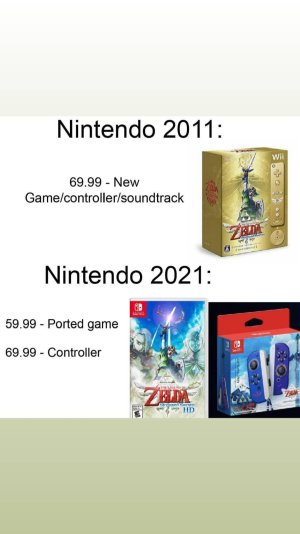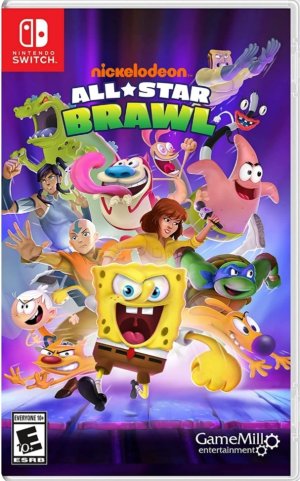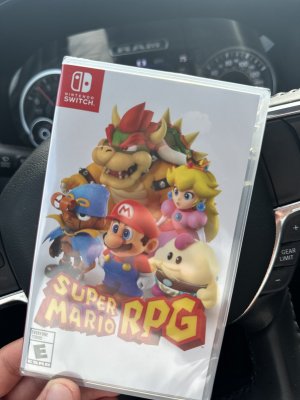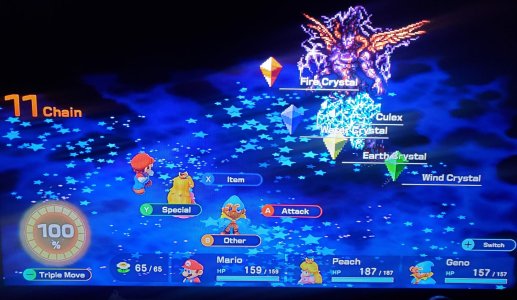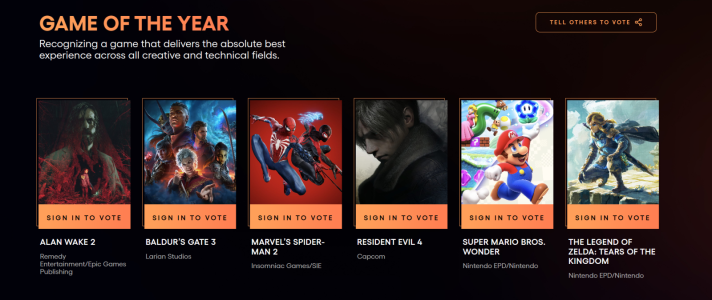Several hours in, Breath of the Wild seems poised to bring Zelda into the modern era.
There's a literal list of things in The Legend of Zelda: Breath of the Wild I'm not allowed to talk about yet, but right now, a week before launch and about 20 hours into the game, there are really only two things I feel I need to talk about. First, Breath of the Wild respects your intelligence as a player more than any Legend of Zelda game before it (with the possible exception of 2013's 3DS release A Link Between Worlds).
And second? Breath of the Wild demands your respect. And if you forget that for longer than a few minutes it'll remind you by knocking you flat on your ***.
A quick bit of housekeeping: these impressions are based on a lot of time with a final, retail version of The Legend of Zelda: Breath of the Wild on the Nintendo Switch. This isn't a review exactly — these thoughts aren't final, as I'm not finished with the game. Nowhere close, in fact. But I have played enough to have some very strong opinions that are solidly formed, big surprises or changes of pace notwithstanding.
Lets get Breath of the Wild's demand that you take it seriously out of the way first, in case you haven't been following the interviews and narrative surrounding it in the last year or so. Breath of the Wild is, without question or debate, the hardest Zelda game of the last twenty years. In fact, as an “old” who literally grew up playing the original Zelda games on NES and SNES when they came out, I'd argue it's the hardest Zelda game period. The first twenty minutes or so are pretty low key — you can kill the scrub bokoblins and other minor enemies you meet without much trouble using nothing more than a tree branch picked up off the ground. But once you leave the initial learning spaces and venture into more typical zones, you're probably going to die.
Breath of the Wild will knock you flat on your ***
And, like, you're probably going to die a lot, honestly. Often without much warning. Or at least I did, and still do, if I'm not careful.
This is in large part because Breath of the Wild gates off areas of the world behind specific kinds of equipment less than any third-person Zelda game. The geographic options in front of me felt almost overwhelming right from the start, and that was just in the opening plateau that serves as the game's tutorial space. Once you obtain a specific item that allows you to leave that plateau, Hyrule is your oyster. It just happens to be an oyster full of really angry monsters and ancient death machines that will murder you if they see you.
Often, the only indication Breath of the Wild might give that you are under-equipped for the space you're in is an enemy taking you from, say, six hearts to a quarter of one in a single axe swipe or spear lunge (assuming, you know, they don't just kill you outright). Or, like I said, they'll just kill you with no real fanfare or warning, and the game will reload you fairly close to where you were, hopefully having learned an important lesson about Hyrule's ecosystem and its desire for you not to exist in it.
Comparisons to games like Dark Souls are probably inevitable, but they're not exactly fair. You don't lose anything when you die, other than the time lost getting back to where you were. You do have to contend with equipment with a finite lifespan however, and resources will often be scarce unless you gather ingredients to make potions and meals. This is something I've typically avoided in open world action RPGs in the last several years — I find this kind of thing incredibly boring. But for whatever reason, cooking and mixing in Breath of the Wild feels a little more loose and a little more immediately rewarding, and, well, it's an absolute necessity.
There's a practical reason for this. While spaces in Breath of the Wild aren't item gated exactly, aside from the aforementioned enemies that will smash you, they can be beyond your physical capabilities. While Link is physically capable — he can climb most walls and use a sort of hang glider, and he can swim right away, no items required — more strenuous activity depletes Link's limited stamina bar. However, if you cook the right things together, you can create meals and elixirs that, say, refill your stamina completely, or even give you temporary extra stamina that might allow you to reach a spot you otherwise couldn't.
Also if you don't make meals that give you more than a heart or two back — or, eventually, that give you bonus temporary hearts — you're not going to survive against more powerful common enemies you'll find out in the world.
At first this all feels like a lot to keep track of and consider while playing a Zelda game, but it quickly became second nature for me. And it all ties into the first idea I talked about above, that Breath of the Wild feels like the first third-person, big budget Zelda game to eschew a meandering, elaborate, incredibly extended tutorial section. Breath of the Wild teaches you to play it, don't get me wrong. The plateau you start on gives you the powers and abilities you'll use for much of the game's puzzle solving via shrines, and each shrine is a series of instructional scenarios for a particular ability. But you can also screw around and kill Bokoblins and climb and explore the area to your heart's content if that's what you want to do, and you could spend hours doing it before you left for the rest of Hyrule.
Put another way: as I was playing the first few hours of Breath of the Wild, I was capturing gameplay for Polygon's coverage. At a certain point I considered restarting the game to get better footage. I considered restarting a Zelda game's first hours without hating life. Breath of the Wild, in respecting your intelligence, also respects your time.
That respect radiates outward. The puzzle logic in Breath of the Wild feels legitimately logical, and smartly physics-based. There are optional shrines scattered throughout Hyrule that act as mini puzzle dungeons, and almost without exception, they've all been a lot of fun to figure out. After more than two dozen of them, Breath of the Wild also doesn't seem out of ideas.
And so far, this is the thing I'm most struck by. Breath of the Wild has so far managed to integrate a steady stream of new ideas and twists on existing Zelda concepts, including weapon durability and variety. Example: boomerangs are now dual use tools that can be wielded as melee weapons or thrown in traditional Zelda fashion, but if you do the latter, you'll need to be quick and catch it on the way back. Every weapon I've found so far is a finite tool as well, so I've learned not to get too attached.
But even with these and other, bigger changes, Breath of the Wild has never stopped feeling like a Zelda game — and what's more, it seems poised to establish itself as the first current, vital feeling Zelda title in longer than I can remember.



















